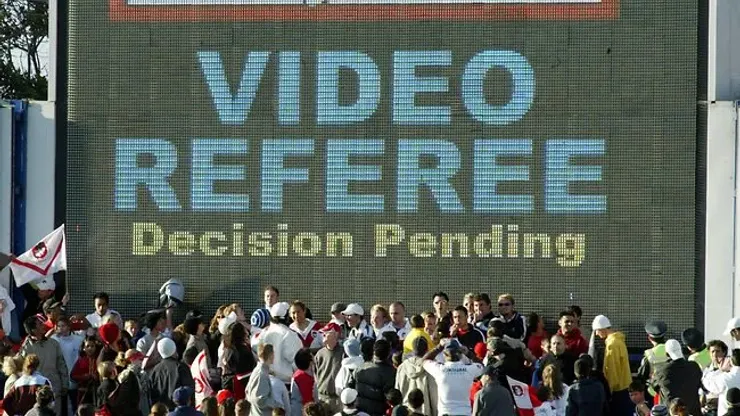The International Football Association Board (IFAB), which governs the rules of the game, has approved testing of video technology to aid match officials, it was announced on Saturday.
Experiments will be carried out over a two-year period starting no later than the 2017/18 season before a final decision is taken on whether to adopt the technology permanently.
FIFA described it as a “landmark decision” but said the experiments would allow IFAB “to identify the advantages, disadvantages and worst-case scenarios”.
The trials will allow referees to call on video assistance to help determine four categories of game-changing moments — goals scored, red cards, penalties and mistaken identity.
In the experiments, a video assistant referee will have access to video replays during matches and will either review an incident on request or communicate with the referee proactively about an incident that may have been missed by the officials on the field of play.
“We have taken really a historic decision for football,” said new FIFA president Gianni Infantino at a press conference in the Welsh capital Cardiff.
“FIFA and IFAB are now leading the debate and not stopping the debate. We have shown we are listening to the fans, players, to football.
“We are applying common sense. Of course we have to be cautious but we are also open to taking concrete measures.”
Infantino has previously admitted his concern that the flow of football should not be affected by the introduction of video.
The decision to introduce video technology follows the widespread introduction of goal-line technology, which was used by FIFA at the 2014 World Cup and will be used by UEFA at this season’s Champions League and Europa League finals, as well as at Euro 2016.
Numerous football associations have already expressed support for introducing video technology and the Dutch Federation (KNVB) have already carried out their own tests into the feasibility of using video to help match officials.
IFAB also agreed a new wording for the law regarding the so-called “triple punishment” of sending-off, penalty and suspension for the denial of a goal-scoring opportunity in the box.
Players will now be cautioned rather than sent off, unless the offence is for holding, pushing or pulling, if there is no attempt to play the ball or if there is serious foul play or violent conduct.
It was also agreed that experiments would be carried out on the use of a fourth substitute in extra time, although it has not yet been decided which competition will carry out the tests.
200+ Channels With Sports & News
- Starting price: $33/mo. for fubo Latino Package
- Watch Premier League, Women’s World Cup, Euro 2024 & Gold Cup
The New Home of MLS
- Price: $14.99/mo. for MLS Season Pass
- Watch every MLS game including playoffs & Leagues Cup
Many Sports & ESPN Originals
- Price: $10.99/mo. (or get ESPN+, Hulu & Disney+ for $14.99/mo.)
- Features Bundesliga, LaLiga, Championship, & FA Cup
2,000+ soccer games per year
- Price: $5.99/mo
- Features Champions League, Serie A, Europa League & Brasileirāo
175 Premier League Games & PL TV
- Starting price: $5.99/mo. for Peacock Premium
- Watch 175 exclusive EPL games per season






